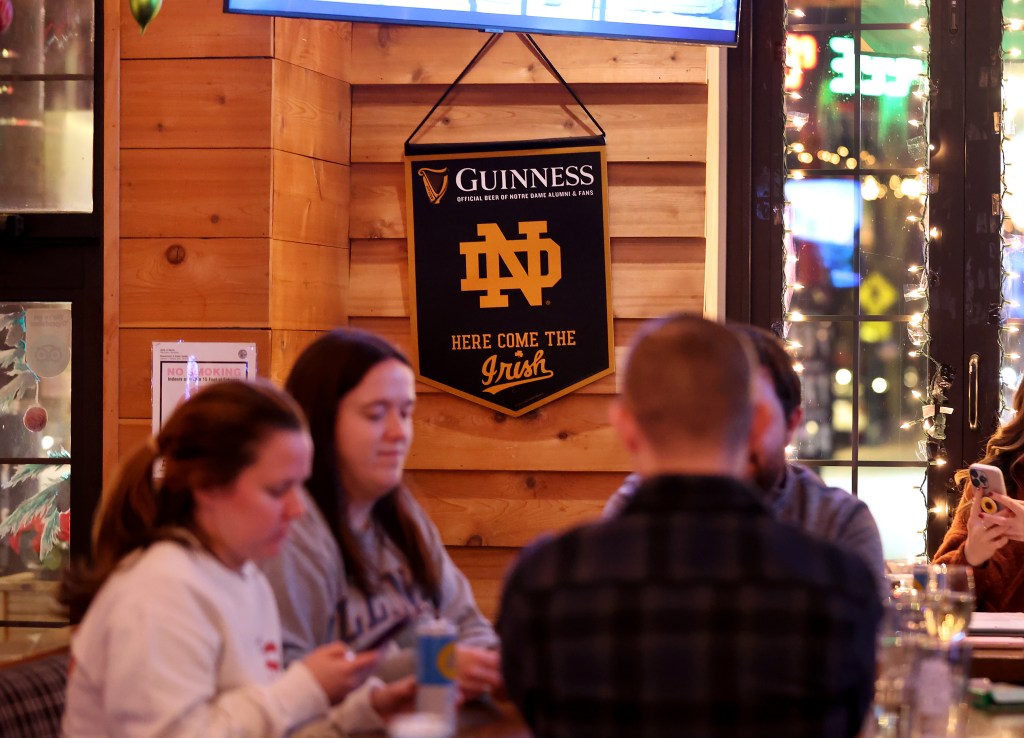In the hours after New Orleans officials announced that at least 15 people had been killed and 30 were injured in an attack on a crowd of New Year’s revelers, Chicagoans with ties to the city, and the Sugar Bowl college football game that it was due to host, said they were still struggling to process the events.
In the early morning hours of New Year’s Day, a driver identified as Shamsud-Din Bahar Jabbar plowed through a crowd of pedestrians gathered on New Orleans’ historic Bourbon St., in an attack that’s being investigated as an act of terrorism by the Federal Bureau of Investigation. The agency said it does not believe Jabbar, who was killed in a shootout with police, acted alone.
Nina Moffa, president of the Tulane Club of Chicago, lived in New Orleans for 14 years. After eventually resettling in Chicago, she began volunteering with Tulane University’s local alumni chapter to maintain a connection to the New Orleans university, which she said instilled in her a commitment to public service.
“It’s just super upsetting that what should have been a celebration turned into a horrific tragedy,” said Moffa, who added that watching people spring into action, to offer the victims’ aid, has been a balm.
She said she hopes that the attack which marred the onset of the new year doesn’t also tarnish the public’s view of New Orleans’ inspiring trajectory. In the same 70,000-seat Superdome that housed residents displaced by Hurricane Katrina twenty years ago, the city will be hosting the National Football League Super Bowl next month.
At the college level, officials announced Wednesday that the quarterfinal Sugar Bowl between Georgia and Notre Dame, originally scheduled for 7:45 p.m. Wednesday at the Superdome, was pushed back to 3 p.m. Thursday.
“We are trained for these events,” Moffa said of New Orleans’ ability to host large-scale events. “But at the same time, if somebody wants to disrupt that, there’s no amount of preparedness that you can do to stop it.”
But, the spirit of resilience in New Orleans runs strong, Moffa noted. “Tulanians and Chicagoans and New Orleanians are doing what they do best. They’re already donating blood, making donations – with supplies, money, organizing. We know how to get through tough times, and the only way to do that is together.”
Solidarity with those who are suffering
Instead of hosting Notre Dame football fans as he’d planned for weeks, Matthew Baldino, owner of Commonwealth Tavern in Roscoe Village, said football was the furthest thing from his mind Wednesday.
Out of respect for the victims of the attack, staff didn’t respond to any inquiries about the bar’s plans for the rescheduled Sugar Bowl, he said.
“Football and business just have no place in the thoughts of anyone involved in Notre Dame or Notre Dame football right now,” said Baldino, a lifelong Notre Dame fan with multiple family members among alumni. He said the bar has shown every game since it opened in 2014, drawing a crowd of around 100 people each time.
None of that matters today, Baldoni said. “We are not spending any time thinking about the game or the football or the revenue aspect of it,” he said, adding that staff are taking their cue from university president Rev. Robert A Dowd.
“To be in solidarity with those who suffer is to exemplify the spirit of Notre Dame. Today, we are in solidarity with all those impacted by this tragedy,” Dowd wrote in a statement posted to the university’s site Wednesday morning.
“We’ll follow his message and his guidance, and that’s to just spend today thinking about the people that have been affected by this and how sad of a tragedy it is and to thank the first responders for all the work they’re doing,” Baldoni said of Dowd’s message. “We just feel really bad about what happened and our prayers and our condolences go out to the families.”
Just after noon on Wednesday, the Notre Dame Athletic Department posted on X, the social media site formerly known as Twitter, that it had accounted for all football team personnel. “We will continue to stay in contact with local law enforcement, as well as representatives from the Sugar Bowl and College Football Playoff,” the Athletic Department wrote.
Mental health resources are available to players and support staff, with counselors and members of the Campus Ministry routinely traveling with the team, a university spokesperson said.
Originally Published:


